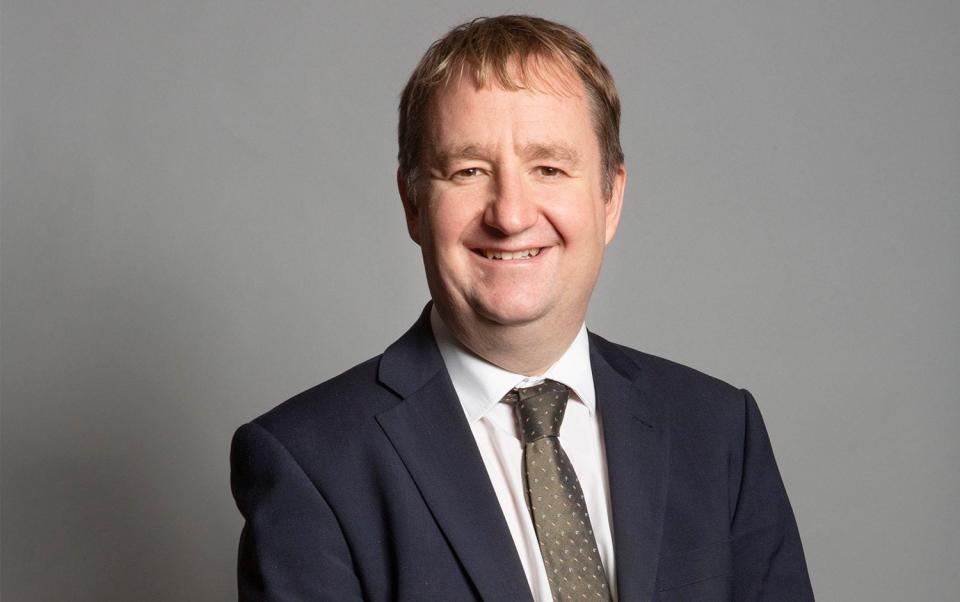Tory MPs say pension age should not rise as increase in life expectancy stalls

Workers are increasingly worried they will never receive the state pension, Tory MPs have claimed.
MPs told Jeremy Hunt that with the increase in life expectancy stalling, the pension age should not increase - as the tradition was that people should be able to enjoy a third of their adult life in retirement.
One MP said pensions were increasingly becoming like an “optical illusion” because as people get older, the age at which they can draw their pension gets further out of reach.
And Mr Hunt was warned that forcing people to work longer could make age discrimination worse.
The Telegraph reported in November that the Chancellor was considering bringing forward the year at which the state pension increases to 68 from 2039 to the mid-2030s.
In the debate on Monday night, Conservative MP Nigel Mills said that it is right that if life expectancy increases, “you have to find a way of paying for that” - but said the “data does not now show, sadly, life expectancy increasing”.
He went on: “On that logic, you would be thinking ‘yes, we are due a periodic review and it would say nothing has changed, in fact it has got a bit worse, nothing to see here, let’s not make any more changes’.”

The Amber Valley MP asked: “Do the Government stick to this principle and actually you should get a roughly fixed proportion of your adult life in retirement? And are the Government sticking to that 33 per cent?”
Natalie Elphicke, the Tory MP for Dover, said: “For a person of my age, the statutory pension is like one of those Scottish mountains.
“It is an optical illusion: as we get ever closer, it seems that there is just that bit further to go. When I started my working life, my pension age was 60.
“When it was changed in 2010, I was already roughly two thirds of the way through my expected working life. Should the pension age be raised to 68, a woman of my age, at current rates, will have lost out on the equivalent of between £59,000 and £77,000.
“That matters because of the basis on which I began paying national insurance contributions when I started work.”
She argued that if the pension age is to be extended, “then the law needs to be changed” as “age discrimination is like any other discrimination”.
She made the example of one of her constituents, who, at the age of 66, the current state pension age, faced “such lawful age discrimination”.
Ms Elphicke said he had been working for the same company for more than 30 years, but when he reached his 66th birthday his bosses sent him a letter informing him they were “terminating his life insurance, his health insurance and all his other insurance benefits”.

She concluded her speech by saying: “Unless we tackle the age discrimination, we will be creating and continuing an environment where it will be very difficult for people who are working in their older age.”
Sir Stephen Timms, Labour MP and chairman of the Commons work and pensions select committee, insisted ministers must publish the latest government-backed research on the state pension age before they make any decision to raise it.
“Even before the pandemic hit, the improvements in life expectancy which we had seen over the last century had almost ground to a halt,” he said.
The East Ham MP urged the Government to publish the latest independent report into the state pension age, completed by Baroness Neville-Rolfe last September, before the Budget this spring.
He said: “We shouldn’t just see the evidence afterwards, after the Government has announced what it plans to do, because the chance of changing the Government’s mind at that point, it just isn’t going to happen.”
Work and pensions minister Laura Trott said it is current government policy, following the Cridland review in 2017, to “bring the rise to 68 forward to 2037/39”, adding: “That is the baseline. We’re required under law to review this every six years and that is what is being undertaken currently.”
On life expectancy, she said: “The most recent ONS projections have a slower rate of improvement in life expectancy than those that informed the Pensions Act 2014 and 2017.
“Nevertheless, despite the slower improvement rate, ONS projections continue to show an increasing life expectancy over time and the number of people over state pension age is expected to continue to rise.”

